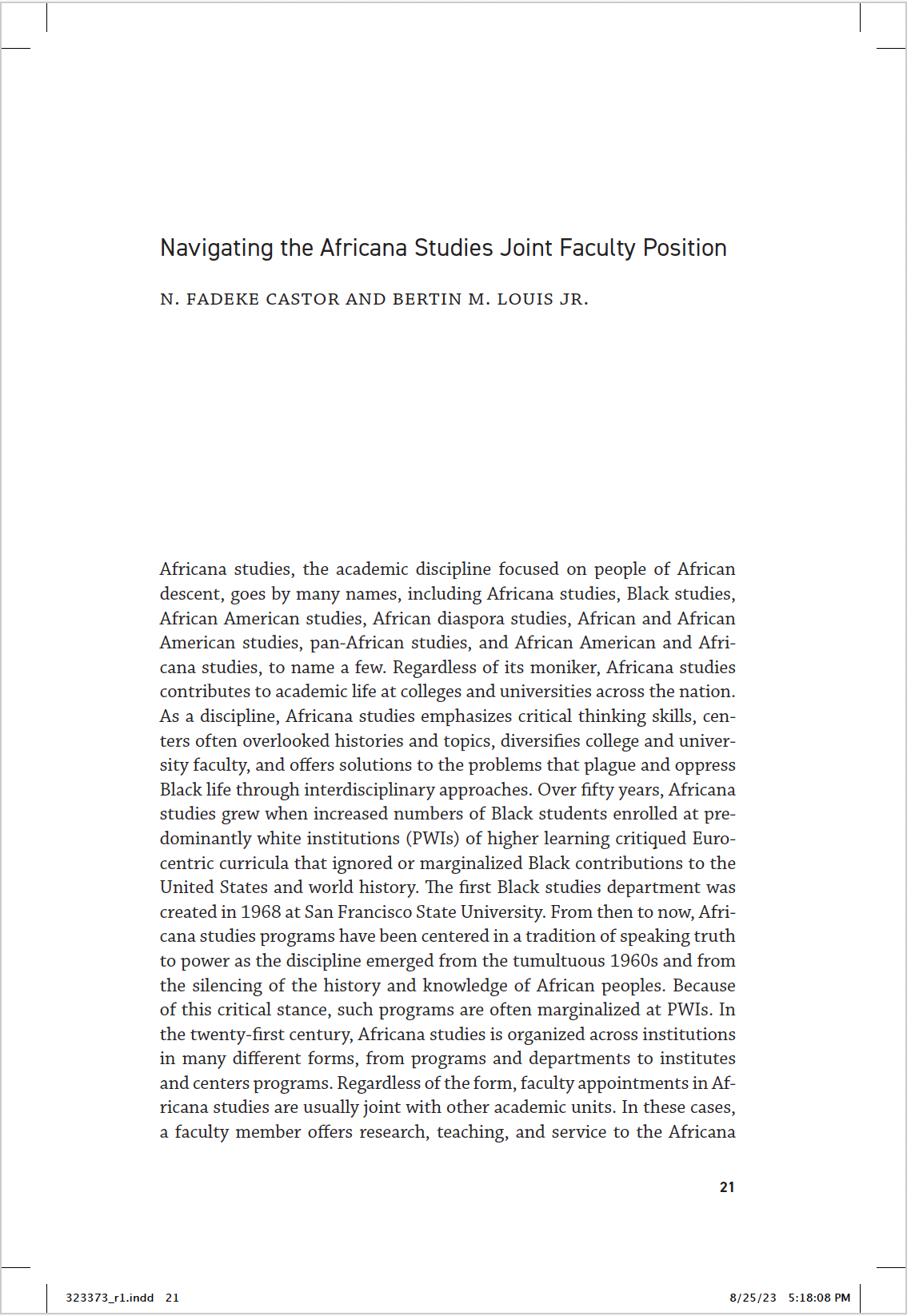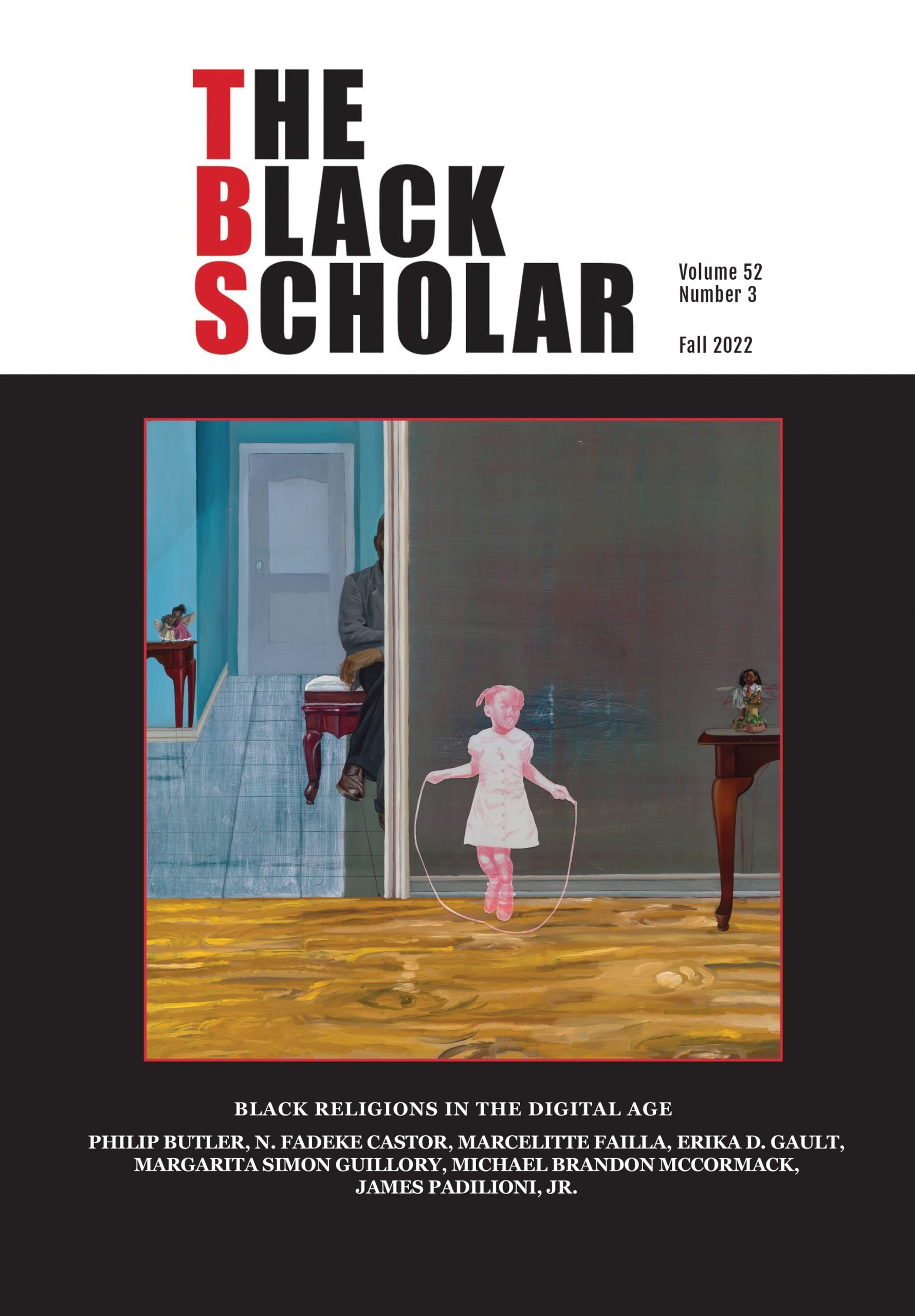
RESEARCH
Transnational Pathways from Black Power to Ifá in Trinidad
SPIRITUAL CITIZENSHIP
Spiritual Citizenship (Duke 2017) illuminates how Ifá/Orisha practices informed by Yoruba cosmology shape local, national, and transnational belonging in African diasporic communities in Trinidad and beyond. Drawing on almost two decades of fieldwork in Trinidad, Castor outlines how the political activism and social upheaval of the 1970s set the stage for African diasporic religions to enter mainstream Trinidadian society.
ARTICLES & CHAPTERS
-

The Spirit of ‘Buss Head’: History and Healing
-

Navigating the Africana Studies Joint Position
Conditionally Accepted (UTexas 2024)
-

Sacred Cites: Engaging the Spiritual
Studies in Religion (2024)
-

Ifá/Orisha Digital Counterpublics
The Black Scholar (July 31, 2022)
-

Subjectivity: Offerings from ADR Ethnography
Fieldwork in Religion (May 19, 2022)
-

Commitment To Those Who Have Come Before
Tarka (2022)
-

Spiritual Ethnicity: Our Collective Ancestors
Embodying Black Religions (2021)
-

Juju Justice: Policing and Black Religions
Africana Studies Review (Spring 2019)
-

Shifting Multicultural Citizenship
Cultural Anthropology (July 26, 2013)
WORKS IN PROGRESS
“Research is formalized curiosity. It is poking and prying with a purpose. It is a seeking that he who wishes may know the cosmic secrets of the world and they that dwell therein.”
-
My next project brings ethnographically grounded Black Feminist theorizations to the study of religion to envision and inform new ways of belonging. I ask, how do people’s cosmologies and spiritual ontologies inform their building of community and visions of a liberated future? I locate my response to this question at the intersection of Black sacred practices, marronage, and fugitivity. This project works to illuminate the freedom codes of marronage that have always already been through exploration of collective spiritual praxis across several African diasporic and Afro-Indigenous communities. I offer that we consider recognizing those people and communities whose ways of being both ask (and answer) important questions such as: What does it mean for our methodologies, our theories, our politics, and our ways of living together in community if we were to center Spirit as manifest in all living things (including the Earth)? And what are the implications of taking seriously intangible energies and powers that we are in constant relation with? Ultimately, this work explores the ways in which African/Indigenous inspired religious cosmologies and spiritual ontologies shift our subjectivities and ways of knowing. In doing so, I propose to map practices and performances that can create quilombolas, clearings, and hush harbors where we can imagine and build our liberated past/present/futures.
-
Digital Ancestral Altars: Remembrances of Trinidad Ifá/Orisha Elders creates a digital multi-modal repository and archive to commemorate Trinidad’s ancestral Ifá/Orisha elders. The developed website will be the public facing part of the archive and connect members of the transnational Yorùbá Ìṣẹ̀ṣe L’àgbà (traditional religion/culture) community. In recent years many of Trinidad’s Ifá/Orisha elders have passed into the ancestral realm. This informs the urgency of this project as our communities continue to have our elders move on. There is no one place where digital media from their lives, including interviews and ritual moments, can be readily accessed by community members spreading out across the diaspora. Digital Ancestral Altars is positioned in this gap with a vision of expanding over phases to involve a wider swathe of the community and digitally enshrine more elders. Initial content for the website will make accessible to the global Ìṣẹ̀ṣe community specific ethnographic materials from Dr. Castor’s Trinidad Ethnographic Archive. As the project develops it will incorporate shared contributions from the Ìṣẹ̀ṣe community. Ultimately, this project will document and memorialize Ìṣẹ̀ṣe elders, while also contributing to conversations on digital Black religions, spiritual praxis, transnational religious communities and the construction of the African diaspora.
RECENT INVITED ENGAGEMENTS



PUBLIC SCHOLARSHIP
-
“The lynching of George Floyd and the racial reckoning and social-uprising moments that many people came together around, that exposed them to different ways of being religious that draw on the African American and African religious traditions.”
– Dr. N. Fadeke Castor, “How COVID Reshaped the Black Church,” Rolling Stone (April 17, 2022)
-
“What a society calls a ghost is really reflective more of the society than it is necessarily the entity itself, depending upon your belief system.”
– Dr. N. Fadeke Castor, “Ghost Stories,” Northeastern Global News (October 23, 2022)
-
“African Americans’ celebrations of Juneteenth are celebrations of an aspirational freedom. Freedom for African Americans has always been uneven, partial, and deferred.”
– Dr. N. Fadeke Castor, “The Long History of Juneteenth,” Northeastern Global News (June 18, 2020)
You Don’t Know about African Diasporic Religions
Keeping It 101: A Killjoy’s Introduction to Religion Podcast
(September 29, 2021)
The Imposition of Blackness
Journeys B2B
(February 28, 2021)
PUBLIC LECTURES
“I Am Because They Are”: Devotion & Intimacy in Trinidad Orisha
African and Diasporic Religious Studies Association
(July 28, 2014)
Multiple Subjectivities & the Ethnographic Study of Lived Religion
Harvard Divinity School
(April 26, 2023)

